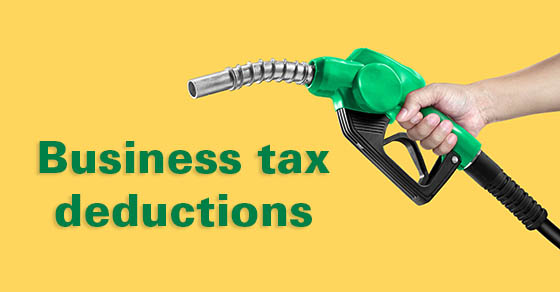Understanding how to deduct transportation costs could significantly reduce the tax burden on your small business. You and your employees likely incur various local transportation expenses each year, and they have tax implications.
Let’s start by defining “local transportation.” It refers to travel when you aren’t away from your tax home long enough to require sleep or rest. Your tax home is the city or general area in which your main place of business is located. Different rules apply if you’re away from your tax home for significantly more than an ordinary workday and you need sleep or rest to do your work.
Your work location
The most important feature of the local transportation rules is that your commuting costs aren’t deductible. In other words, the fare you pay or the miles you drive to get to work and home again are personal and not for business purposes. Therefore, no deduction is available. This is the case even if you work during the commute (for example, via a cell phone or laptop, performing business-related tasks on the subway).
An exception applies for commuting to a temporary work location outside of the metropolitan area where you live and normally work. “Temporary,” for this purpose, means a location where your work is realistically expected to last (and does, in fact, last) for no more than a year.
Work location to other sites
On the other hand, once you get to your work location, the cost of any local trips you take for business purposes is a deductible business expense. So, for example, the cost of travel from your office to visit a customer or pick up supplies is deductible. Similarly, if you have two business locations, the cost of traveling between them is deductible.
Recordkeeping
If your deductible trip is by taxi or public transportation, save a receipt or note the expense in a logbook. Record the date, amount spent, destination and business purpose. If you use your own car, note the miles driven instead of the amount spent. Also, note any tolls paid or parking fees, and keep receipts.
You must allocate your automobile expenses between business and personal use based on miles driven during the year. Proper recordkeeping is crucial in the event the IRS challenges you.
Your deduction can be computed using:
- The standard mileage rate (for 2024, 67 cents per business mile) plus tolls and parking, or
- Actual expenses (including depreciation, subject to limitations) for the portion of car use allocable to the business. For this method, you’ll need to keep track of all costs for gas, repairs and maintenance, insurance, interest on a car loan, and any other car-related costs.
Employees vs. self-employed
From 2018–2025, under the Tax Cuts and Jobs Act, employees can’t deduct unreimbursed local transportation costs. That’s because “miscellaneous itemized deductions” — including employee business expenses — are suspended (not allowed) for these years. (Self-employed taxpayers can deduct the expenses discussed in this article.) But beginning in 2026, business expenses (including unreimbursed employee auto expenses) of employees are scheduled to be deductible again, as long as the employee’s total miscellaneous itemized deductions exceed 2% of adjusted gross income. However, with Republican control in Washington, this unfavorable provision may be extended by Congress, and miscellaneous itemized deductions won’t be allowed.
Contact us with any questions or to discuss these issues further.




